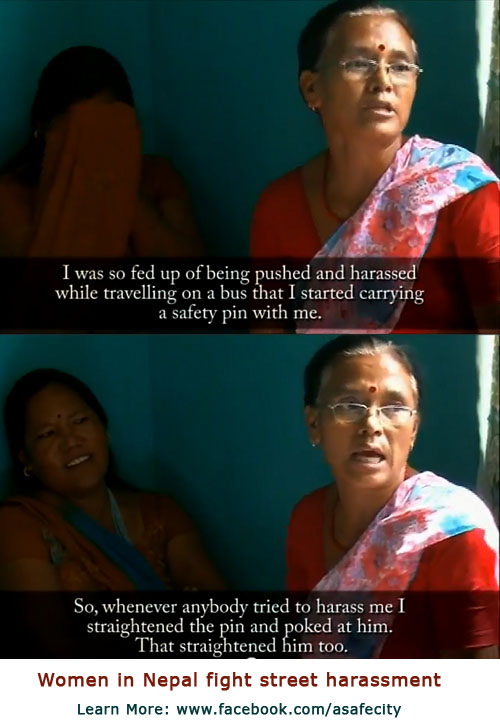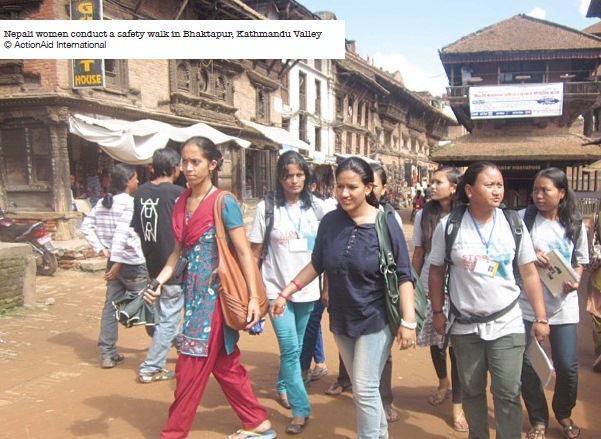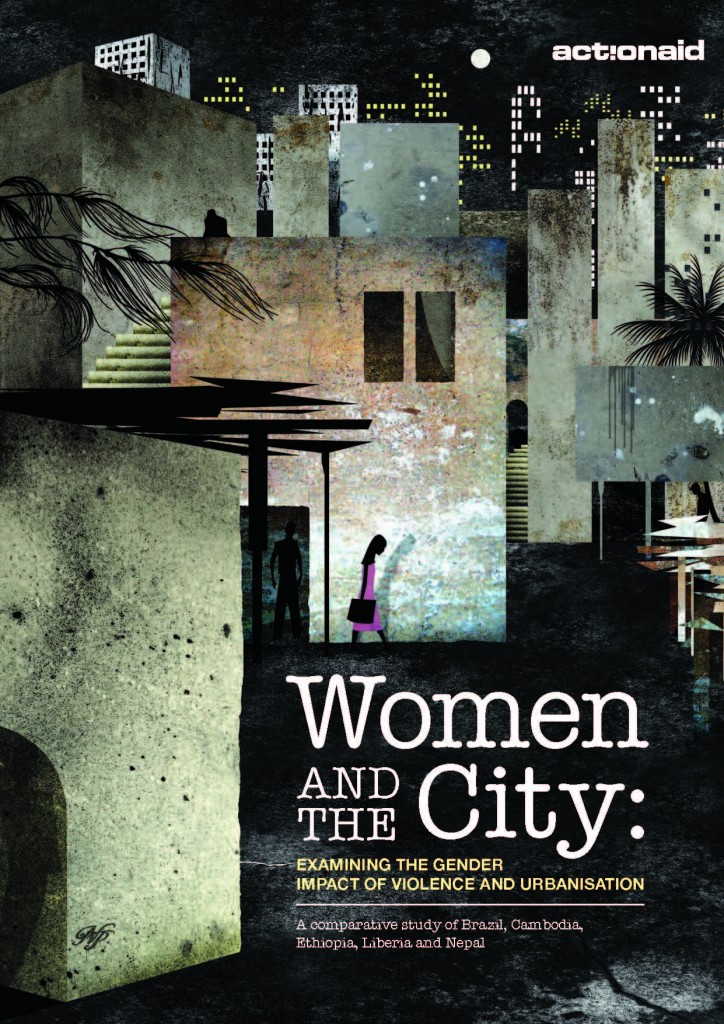It’s the first day of Meet Us On the Street: International Anti-Street Harassment Week, and we already have so much going on!
Virtual Events:
- April 12 | 4 p.m. Indian Standard Time: @PintheCreep will focus their Tweet chat on encouraging people to report harassers.
- Tonight: 7pm EDT End Street Harassment: A Multicultural Perspective: Google Hangout
Please join Young Feminists and Allies, the National Organization for Women’s First Virtual Chapter, and Stop Street Harassment for a Google Hangout about Street Harassment from a multicultural perspective.
Holly Kearl, founder of International Anti-Street-Harassment Week, will moderate three brave women with diverse backgrounds as they discuss the similarities and differences in the ways they experience street harassment.
* Kasumi Hirokawa: TCK and trilingual feminist from Shanghai who currently lives in Japan
* MorningStar Angeline: Native American and Latina actress who lived in both the Southwest and West Coast of America
* Muneera Hassan: Bangladeshi-American, Muslim, college student from Boston currently living in Northern VA who wears hijab
There will be a Q&A section, so please send us your questions in advance or during the event at youngfeminists at gmail dot com or Tweet at at @nowyoungfems and please use the #EndSH hashtag.
International Events:
Cameroon: Young Women for a Change, Cameroon is holding a dialogue in Beau with youth and adolescents to address the different forms of Street harassment facing women and girls and how to intervene. [April 12]
Canada (Vancouver): Hollaback! Vancouver will be debuting their interactive campaign and art show “What’s Your Number?” It will enable people to record the frequency and emotions involved with street harassment for 24 hours. Clickers (or counters) will be distributed to initial participants along with a blank notebook. For 24 hours, they will click twice for direct street harassment, and once for an indirect impact. At the end of the 24 hours, the clickee is encouraged to creatively express the experience in the notebook provided through mediums like poetry, illustration or essaying before they’re passed on to the next one. At the end of the week, the notebooks will be collected by the Hollaback Vancouver team for compilation. In order to showcase the process behind What’s Your Number?, the art show will be a free event extended to the community at-large. Part education, part creative and part party, this night will get everyone together in a comfortable space to talk about the effects of street harassment and – most importantly – what can be done. [Campaign kicks of all over the city on April 12th, with the Artshow / wrap up party taking place April 30th 436 Columbia St Vancouver BC 7-11 pm]
Colombia: OCAC Colombia is hosting SUNDAY, APRIL 12 – 9:00 a.m.: STOP THE STREET HARASSMENT: We will be in the Sunday’s Bikeway and we will will cross cycling the 7th Avenue from Plaza Bolivar to the National Park | DOMINGO 12 DE ABRIL – 9 AM. ALTO AL ACOSO. Estaremos en la Ciclovía y haremos un recorrido por la carrera séptima desde la Plaza de Bolívar hasta el Parque Nacional
Nepal: Hollaback! Kathmandu will be hosting a Stand Up Against Street Harassment event, displaying charts and boards that say street harassment is not okay. They will also be interacting with the local people about what the campaign is and what they can do to respond to street harassment and stop it. [April 12, 3-5pm at Basantapur]
USA Events:
Iowa: Hollaback! Des Moines is hosting their 3rd Annual Chalk Walk to End Street Harassment. [April 12, 1 pm at the Pappajohn Education Center]. Can’t be there in person? Sometime during the week of April 12-18, go back to a street where you experienced harassment. Reclaim that space by writing an empowering message; then take a picture and send it to them at dsm@ihollaback.org! They will post all the photos to their blog after the event.
Pennsylvania: FAAN Mail will be kicking off EndSHWeek with their 5th annual rally and community engagement event. [April 12, 2-5pm at Love Park, Philadelphia]
Virginia: Hollaback! RVA is hosting a Bystander Workshop discussing and presenting on how bystander intervention and street harassment intersect. They will provide “swag bags” and snacks to participants! [Richmond, April 12, time and place TBA]
Plus, some of our groups got an early start on things and hosted these fabulous events on Saturday, April 11th:
Bahamas: Hollaback! Bahamas hosted a meditation and stress relief workshop with the World Peace Initiative.
United Kingdom: Rape & Sexual Abuse Support Centre hosted street action focused on victim-blaming and rape culture (#ThisDoesn’tMeanYes) at Braithwait Tunnel, Braithwaite Street, London.
South Korea: Rok Gi Yeon Promotions hosted “Ladies Night Vol. 2,” a benefit concert to support the charity Disruptive Voices, in Seoul. Find the Facebook event here.
Pakistan: No to Harassment hosted a fabulous panel and discussion about how a woman is #notanobject.
New York: Hollaback! hosted the annual NYC Anti-Street Harassment Rally! The event featured local activists and speakers and include da series of workshops for folks to learn more and take action against street harassment. It also featured Hollaback!’s famous 12 foot inflatable #catagainstcatcalling cat.
Pennsylvania: University of Scranton is hosted a SHARE (Street Harassment Awareness Response and Education) Fair.




